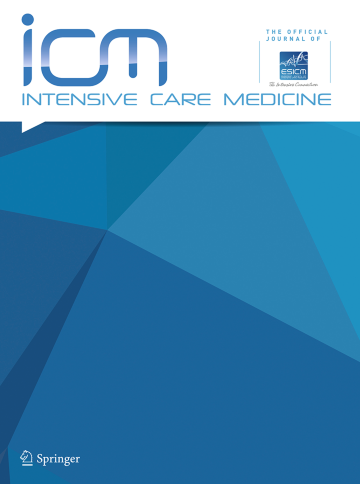心源性休克:诊断、表型和处理。
IF 21.2
1区 医学
Q1 CRITICAL CARE MEDICINE
引用次数: 0
摘要
心源性休克(CS)是一种由原发性心力衰竭引起的关键终末器官灌注不足的状态,在这种状态下,尽管有足够的预负荷,心脏仍不能产生足够的输出,并与非常高的死亡率相关。精准医疗的出现可能会根据个体患者的情况,包括基因、生物标志物、影像和临床数据,进行量身定制的干预。先进的血流动力学监测、更小轮廓和更高流量的机械循环支持装置以及靶向药物治疗扩大了CS的治疗可能性。然而,将这些新方法整合到临床实践中需要与循证医学仔细结合。平衡创新与强有力的临床证据至关重要。许多技术在全面试验证实其益处之前就进入了临床领域,这给脆弱的CS患者带来了潜在的风险。因此,精准医疗必须以随机对照试验、注册和荟萃分析的严格数据为基础,以确保安全性和有效性。协作努力,包括大规模数据共享和国际研究网络,对于弥合创新与证据之间的差距至关重要。目标是在保持科学严谨性的同时,超越一刀切的模式,转向更细致、以患者为中心的方法。本文章由计算机程序翻译,如有差异,请以英文原文为准。
Cardiogenic shock: diagnosis, phenotyping and management.
Cardiogenic shock (CS) is a state of critical end-organ hypoperfusion caused by primary cardiac failure, in which the heart cannot generate sufficient output despite adequate preload and is associated with very high mortality rates. The emergence of precision medicine may enable tailored interventions based on individual patient profiles, including genetic, biomarker, imaging, and clinical data. Advanced hemodynamic monitoring, mechanical circulatory support devices with smaller profiles and higher flow, and targeted pharmacologic therapies have expanded the therapeutic possibilities in CS. However, integrating these novel approaches into clinical practice requires careful alignment with evidence-based medicine. Balancing innovation with robust clinical evidence is crucial. Many technologies enter the clinical sphere before comprehensive trials confirm their benefit, creating potential risks in vulnerable CS patients. Precision medicine must therefore be grounded on rigorous data from randomized-controlled trials, registries, and meta-analyses to ensure safety and efficacy. Collaborative efforts, including large-scale data sharing and international research networks, are essential to bridge the gap between innovation and evidence. The goal is to move beyond a one-size-fits-all model toward a more nuanced, patient-centered approach while maintaining scientific rigor.
求助全文
通过发布文献求助,成功后即可免费获取论文全文。
去求助
来源期刊

Intensive Care Medicine
医学-危重病医学
CiteScore
51.50
自引率
2.80%
发文量
326
审稿时长
1 months
期刊介绍:
Intensive Care Medicine is the premier publication platform fostering the communication and exchange of cutting-edge research and ideas within the field of intensive care medicine on a comprehensive scale. Catering to professionals involved in intensive medical care, including intensivists, medical specialists, nurses, and other healthcare professionals, ICM stands as the official journal of The European Society of Intensive Care Medicine. ICM is dedicated to advancing the understanding and practice of intensive care medicine among professionals in Europe and beyond. The journal provides a robust platform for disseminating current research findings and innovative ideas in intensive care medicine. Content published in Intensive Care Medicine encompasses a wide range, including review articles, original research papers, letters, reviews, debates, and more.
 求助内容:
求助内容: 应助结果提醒方式:
应助结果提醒方式:


